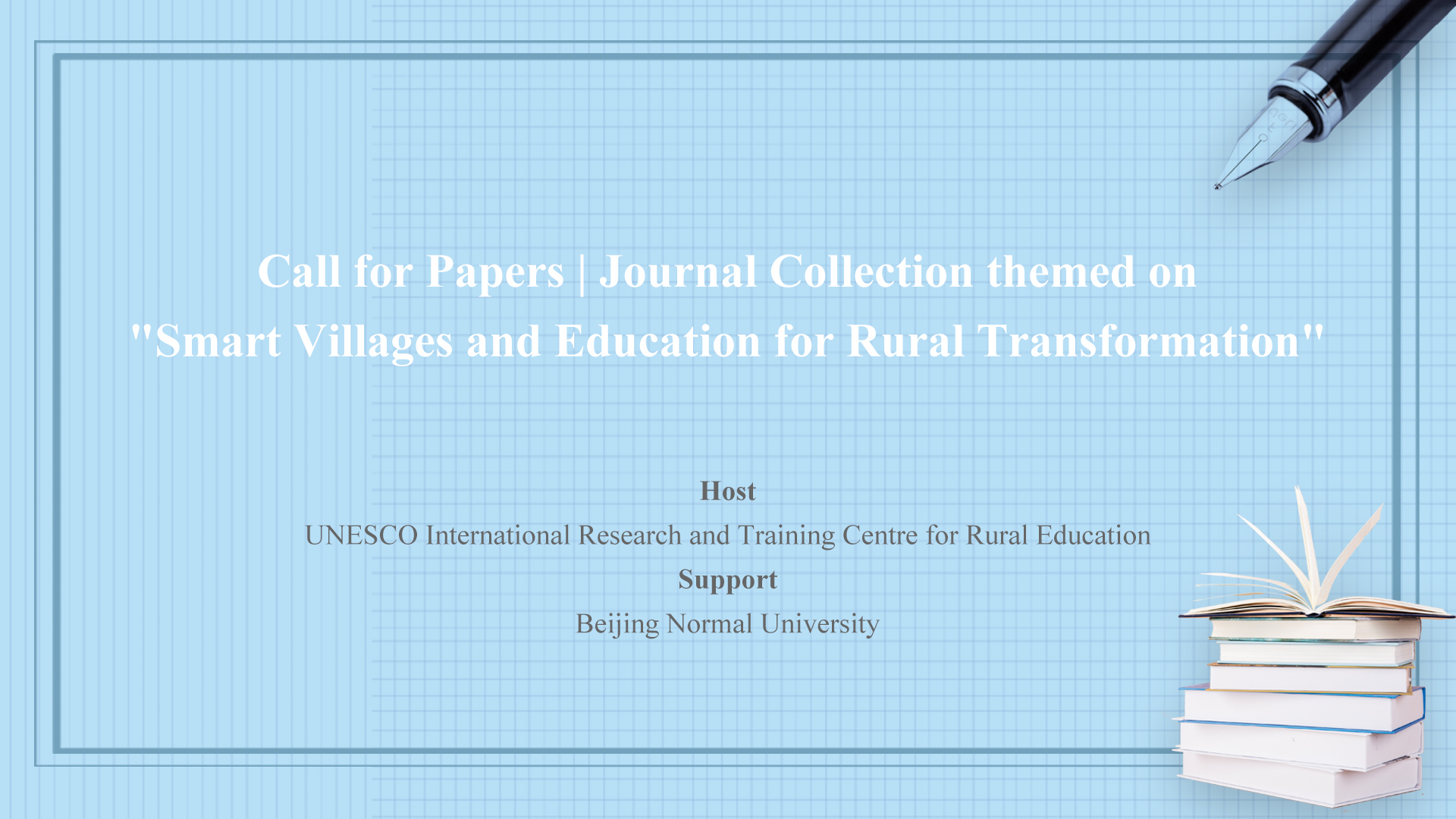Call for Papers | Journal Collection themed on "Smart Villages and Education for Rural Transformation"

In 2015, UNESCO convened the first International Conference on Information and Communication Technologies (ICT) in Education on the theme of "ICT and Post-2015 Education". It adopted the Qingdao Declaration, the first global declaration on ICT in education, with the commitment to effective use of emerging technologies to achieve Sustainable Development Goal 4.
Building on the Qingdao Declaration, UNESCO organised the International Conference on Artificial Intelligence (AI) and Education in 2019 and adopted the outcome document, the Beijing Consensus, the first major UNESCO document to provide guidance and recommendations for using AI technologies to achieve the Education 2030 Agenda.
In 2021, UNESCO advocated for transforming education to address the challenges of globalisation, the climate crisis and the digital revolution in the report Reimagining our Futures Together: A New Social Contract for Education. To further advance the implementation of the Education 2030 Agenda, the United Nations held the Transforming Education Summit in September this year, with digital learning and transformation as one of the action tracks.
ICT has been deeply integrated into education, from technology-assisted teaching to innovative technology integration for teaching and learning. AI as the cutting-edge technology, and the emerging metaverse would have significant impact on the futures of education. In this context, the uneven allocation of resources in terms of accessibility and availability to rural areas and disadvantaged groups makes education for rural transformation face many challenges. It would be valuable to explore ICT-enhanced education for rural transformation around the world.
UNESCO International Research and Training Centre for Rural Education (INRULED) plans to publish a collection of papers on "Smart Villages and Education for Rural Transformation" in February 2023, which was launched with the strong support from Beijing Normal University. The editor-in-chief is professor ZHU Xudong, dean of the Faculty of Education of the University, and the associate editors are associate professor LI Baoping and professor ZHANG Lili, chief experts of INRULED.
Featuring sections on theoretical research, policy analysis, practice and cases sharing, and international exchanges, this collection seeks to promote the education for rural transformation by leveraging the power of technologies, under the framework of Education 2030.
The collection focuses on the following themes:
1. Policy Planning: national and local policy planning for rural education in the digital era.
2. Theoretical Research: mechanism, paths and models of smart villages and technology-enhanced education for rural transformation.
3. Rural Teacher Development: teachers’ ICT competence and the role of ICT in teachers’ continuing professional development.
4. Innovation in Teaching and Learning: innovation in technology-enabled teaching and learning in rural schools, AI to promote learners’ motivation and innovative solutions for rural education in the context of COVID-19.
5. Gender Equality: gendered digital gap, and girls’ and women’s empowerment in and through ICT.
6. Educational Equity from Rural-Urban perspective: financing of rural education, investment in ICT infrastructure in rural schools, and the role of the private sector in the process of digital transformation of rural education.
7. Vocational Education and Training (VET), and Lifelong Learning Society: digital literacy and skills training for farmers, open education resources, construction of national smart education platform, and technology-enabled learning village construction.
8. Social and Ethical Issues of technologies: cyber-safety, personal privacy and mental health issues for teachers and students.
9. Partnerships and International Cooperation: multiple partnerships for rural education development in the digital era, and transnational assistance to rural education by international organizations, NGOs, countries, schools and other entities.
We sincerely invite experts and practitioners in related fields from home and abroad to submit papers. Papers should be 8,000-10,000 words in Chinese or 4,000-6,000 words in English. Please share your paper to ncjy_journal@inruled.org by 31 December.
UNESCO International Research and Training Centre for Rural Education
Institute of Rural Education and Rural Development, Beijing Normal University
Editorial Board of Rural Education and Rural Development
26 September 2022


